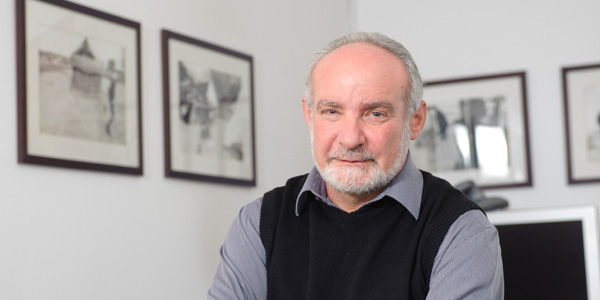Brain health and Africa’s future
- Wits University
Wits professor joins global task force on dementia.
In South Africa, projections suggest that more than one million people will live with dementia in the upcoming decades. This is roughly the entire population of the Eastern Cape’s Nelson Mandela Bay.
Indeed, by 2050, Africa as a whole will be at the frontline of increasing neurodegenerative challenges with an older population growing at an unprecedented rate.
In light of this significant health concern pressing on already constrained health systems, Professor Stephen Tollman, the Director of the SAMRC/Wits Rural Health Transitions Unit (Agincourt), was invited to serve on the Africa Task Force on Brain Health established by the Davos Alzheimer’s Collaborative.

The collaborative has published an article in the prestigious journal Nature Medicine connecting brain health with economic resilience.
Significantly, an ambitious yet practical five-year framework (the 6x5 plan) will accelerate Africa’s preparedness.
“Brain health runs through every stage of life and every sector of society,” says Tollman. “It connects health, education, equity, and opportunity. If we integrate it into what Africa is already doing well, we can protect our ageing citizens and sustain our economies.”
Dementia is caused by brain changes that damage and eventually kill nerve cells. In Alzheimer’s disease, this includes abnormal protein build-up that disrupts communication between cells and leads to brain shrinkage.
Early signs include memory lapses, word-finding difficulties and disorientation, progressing to impaired reasoning, personality changes and loss of recognition.
The 6x5 plan to strengthen Africa’s preparedness
“We stand at a decisive moment. Brain health is not just about the well-being of older people but also about their growth and development when they are much younger. Indeed, brain health is critical to the economic and social prosperity of society as a whole. In later life, a person’s cognitive decline, which is a product of cumulative health and social challenges along the life course, affects everyone: families, households and the workplace,” says Tollman.
The 6x5 plan identifies six immediate priorities for the continent to pursue over the next five years, with task forces established to drive progress. The six working groups, aligned with the priorities, comprise experts from across Africa’s five geopolitical regions and are multilevel and multisectoral.
- The first priority is expanding brain health advocacy and literacy, including challenging stigma.
- The second is positioning brain health as a driver of socioeconomic transformation, recognising that cognitive resilience underpins productivity, creativity, and innovation.
- The third priority is to extend the use of existing resources, including infectious disease infrastructure, immunisation programmes, surveillance systems, and community health workers, also to deliver dementia detection and care. Many mainstream prevention programmes relating, for example, to hypertension, diabetes, and obesity are directly relevant to maintaining cognitive health.
- The fourth is to break down silos of people and data, harmonising and sharing evidence across countries so that policy can be based on accurate burden estimates.
- The fifth priority highlights the transformative potential of Africa’s mobile revolution, utilising digital health tools, artificial intelligence, and culturally adapted screening to reach millions at a low cost. The sixth calls for sustainable funding, integrating brain health into universal health coverage and national development goals.
“Africa can realise this plan, using much of what it already has,” says Tollman.
The SAMRC/Wits-Agincourt Research Unit, which borders the Kruger National Park and southern Mozambique, has run a health and socio-demographic surveillance system for over three decades. Through the Health and Ageing in Africa: Longitudinal Studies in South Africa (HAALSI) programme based at the unit, researchers are documenting how adults 40 years and older live, age, and sustain households in resource-limited settings.
The team recently validated a breadth of cognitive assessment tests to establish norms in cognitive function. These context-specific and tailored tests aim to gauge the progression in cognitive change, extent of dementia and identify risk factors (such as physical diseases, social networks, and education) that influence cognitive function.
The unit’s work also shows how brain health, cardiometabolic disease and risk, HIV and social determinants interact across the life course.
Brain health is shaped across the life course
Fast-transitioning settings, including Agincourt-Bushbuckridge, witness rising hypertension, diabetes, stroke and kidney disease. These are risk factors for dementias but also occur alongside them. Notably, the unit’s research shows that brain health is shaped across the life course, beginning with maternal, infant and child health, strengthened by education, supported by mental well-being in adolescence and adulthood, protected through risk reduction in midlife, and sustained by care and support in later life.
The 6x5 plan provides a practical roadmap for the next five years. The Davos Alzheimer’s Collaborative notes that Africa has the evidence, the infrastructure, and the partnerships to act. With coordinated effort, ageing can become a source of resilience rather than vulnerability, and Africa can lead the world in innovative, community-driven approaches to brain health.

